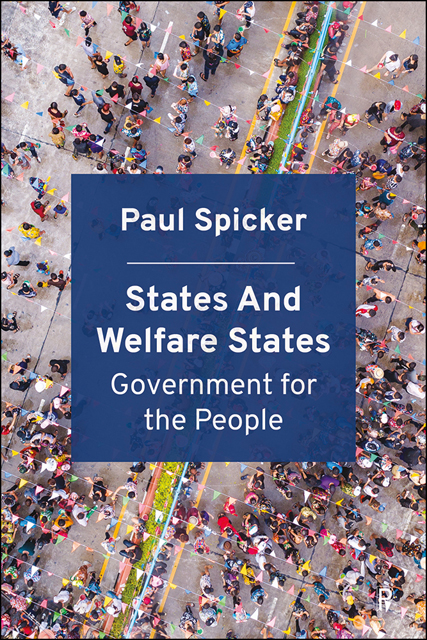10 - Disputed principles
Published online by Cambridge University Press: 20 June 2023
Summary
Summary
The principles that are most often disputed are equality, which is about the removal of disadvantage; purposive redistribution; social justice, which can refer to proportionate distribution but often simply means a desire for a good society; and the idea of the welfare state itself. All of these are directions of movement, rather than destinations.
The topics considered in this chapter are the issues over which different ideologies of government conflict most directly. The concepts of equality, social justice and the welfare state all imply that government and the state will act deliberately to bring about social and economic changes in society. Redistribution, also considered in this chapter, is included in so far as it is done purposively.
For neoliberals, state activity in these areas is largely illegitimate: Nozick condemns the attempt to impose rules on society (or at least, rules that go beyond individualism, property, and defence), and Hayek dismisses the idea of social justice as a ‘mirage’. At the opposing pole, social democrats would argue there is a moral duty to make society fairer and better.
There has been a tendency, in political debate, to represent these principles as ideals – models of what a society might look like. There are two profound objections to that approach. The first objection is made by Walzer, from a communitarian perspective:
In a world of particular cultures, competing conceptions of the good, scarce resources, elusive and expansive needs, there isn’t going to be a single formula, universally applicable. There isn’t going to be a single universally approved path that carries us from a notion like, say, ‘fair shares’ to a comprehensive list of the goods to which that notion applies. Fair shares of what?
The second objection is a pragmatic one, made by Crosland. The process of reforming society has to begin somewhere, and the effect of any social action will be to change the conditions that are being addressed. It follows, he argued, that working to a model or blueprint is self-defeating.
We can … describe the direction of advance, and even discern the landscape ahead; but the ultimate objective lies wrapped in uncertainty. This must be the case unless one subscribes to the vulgar fallacy that some ideal society can be said to exist, of which blueprints can be drawn … in Western societies change is gradual and evolutionary, and not always either foreseeable or even under political control.
- Type
- Chapter
- Information
- States and Welfare StatesGovernment for the People, pp. 127 - 142Publisher: Bristol University PressPrint publication year: 2022



